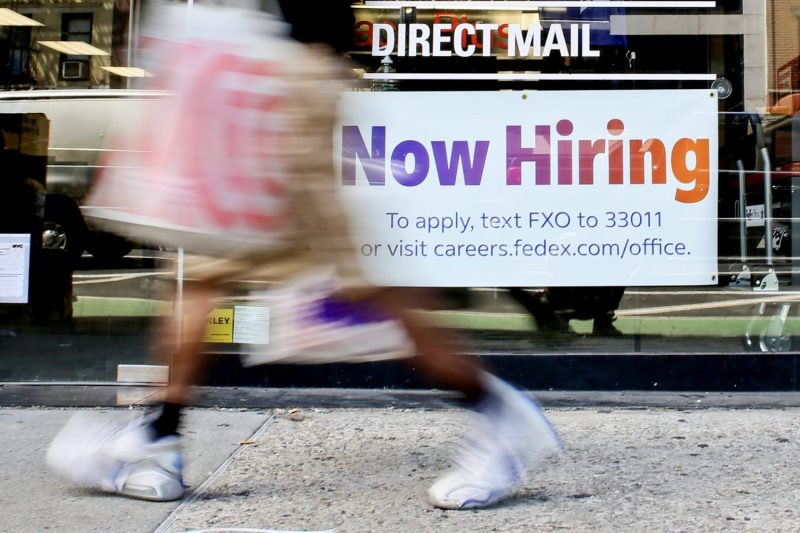
Shocking Revelation: U.S. Job Growth Falls Short, Fueling Fears of Economic Slowdown
The recent revelation that the U.S. added 818,000 fewer jobs than initially estimated has sparked concerns about a possible slowdown in the economy. This new data, released by the Bureau of Labor Statistics, has significant implications for policymakers, businesses, and American workers.
One of the key factors contributing to the discrepancy in job growth figures is the challenges in accurately measuring employment trends during a period of rapid economic change. The ongoing effects of the COVID-19 pandemic, supply chain disruptions, and labor shortages have made it difficult to capture an accurate picture of the labor market situation.
These revised job numbers underscore the importance of having robust data collection methods and modeling techniques in place to provide accurate and timely information on economic activity. Policymakers rely on these figures to make informed decisions on issues such as monetary policy, fiscal stimulus, and unemployment benefits.
Businesses also rely on accurate job market data to plan their hiring strategies, allocate resources, and make long-term investment decisions. The revised job figures may prompt companies to reevaluate their growth projections and adjust their workforce planning accordingly.
For American workers, the revised job numbers raise concerns about job security, wage growth, and overall economic stability. A slowdown in job creation could lead to increased competition for available positions, lower wage growth, and reduced consumer spending power.
To address these challenges, policymakers may need to consider targeted interventions such as additional fiscal stimulus measures, workforce training programs, and support for industries facing acute labor shortages. A proactive approach to managing the ongoing economic uncertainties will be crucial to ensuring sustained job growth and economic recovery.
In conclusion, the recent downward revision of job growth figures in the U.S. highlights the need for accurate and timely data to inform policy decisions, business planning, and individual livelihoods. As the economy continues to navigate through a period of rapid change and uncertainty, stakeholders at all levels must work together to adapt to evolving challenges and opportunities in the labor market.
